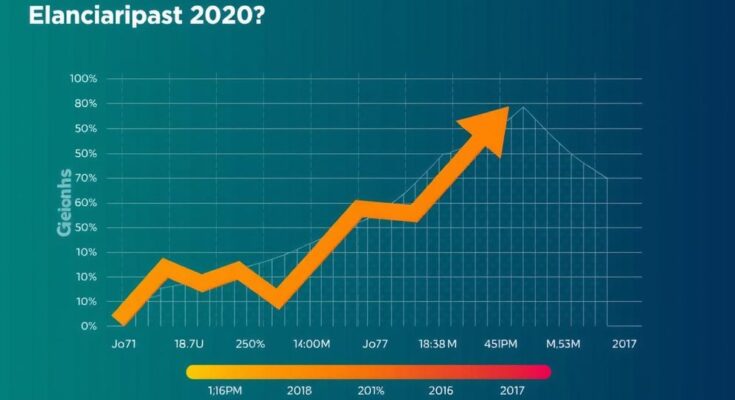The American economy shows resilience with a 2.8 percent G.D.P. growth in Q3, yet many voters still perceive it as only fair or poor. Polls indicate the economy is a pivotal issue for voters, with Trump holding a confidence advantage over Harris, although that gap is narrowing. Trump’s approach to the economy contrasts with his focus on immigration, complicating his campaign strategy as Election Day nears.
As Election Day approaches, the American economy exhibits signs of resilience, with consumer spending on the rise and inflation rates declining. A recent report from the government indicates that the Gross Domestic Product (G.D.P.) expanded at an annual rate of 2.8 percent in the third quarter, reflecting a solid economic rebound since the pandemic. Despite this positive economic growth, a significant portion of the electorate perceives the economy as merely fair or poor, potentially influencing the outcome of the presidential election. In the latest New York Times poll, voters prioritize the economy as the most critical issue of the election cycle, consistently identified in surveys throughout the year. Furthermore, the poll suggests that voters have greater confidence in former President Donald Trump’s economic stewardship than that of Vice President Kamala Harris, though Harris has narrowed the gap from a 13-point deficit to just six points in recent weeks. Political analysts highlight the effectiveness of Trump’s focus on economic concerns as a strategy to connect with voters. “When Trump taps into voters’ concerns over the economy, it can be very effective,” remarked Michael Gold, a correspondent covering Trump’s campaign. However, Gold also noted that Trump often diverges from the economic narrative, expressing a preference for immigration policy discussions despite his advisors urging him to stay focused on economic issues. In related political news, the Supreme Court’s decision enables Virginia to exclude approximately 1,600 potentially ineligible voters from its rolls. Additionally, Vice President Harris sought to distance herself from President Biden’s controversial comments referring to Trump supporters. The political climate in Arizona remains highly competitive, with Republicans emphasizing immigration and Democrats advocating for abortion rights. Lastly, Arnold Schwarzenegger, the actor and former Republican governor of California, has endorsed Harris, adding another layer to the electoral dynamics.
In the context of the upcoming presidential election, the economic landscape is often a pivotal factor influencing voter sentiment and decision-making. Historically, economic performance is correlated with the electoral success of incumbents and challengers alike. The American electorate’s perception of economic vitality can significantly shape campaign strategies and the focus of political discourse, particularly during midterm and presidential elections. The interplay between economic indicators, voter opinions, and political narratives will likely shape campaign strategies as Election Day approaches.
The current state of the economy, as indicated by a reported G.D.P. growth rate of 2.8 percent, presents a complex picture for the upcoming election. Although there are signs of economic improvement, widespread voter dissatisfaction persists, primarily due to the lasting effects of inflation. Candidates’ positions on the economy could heavily influence voter choices, making it a key focal point in the months leading to Election Day.
Original Source: www.nytimes.com




